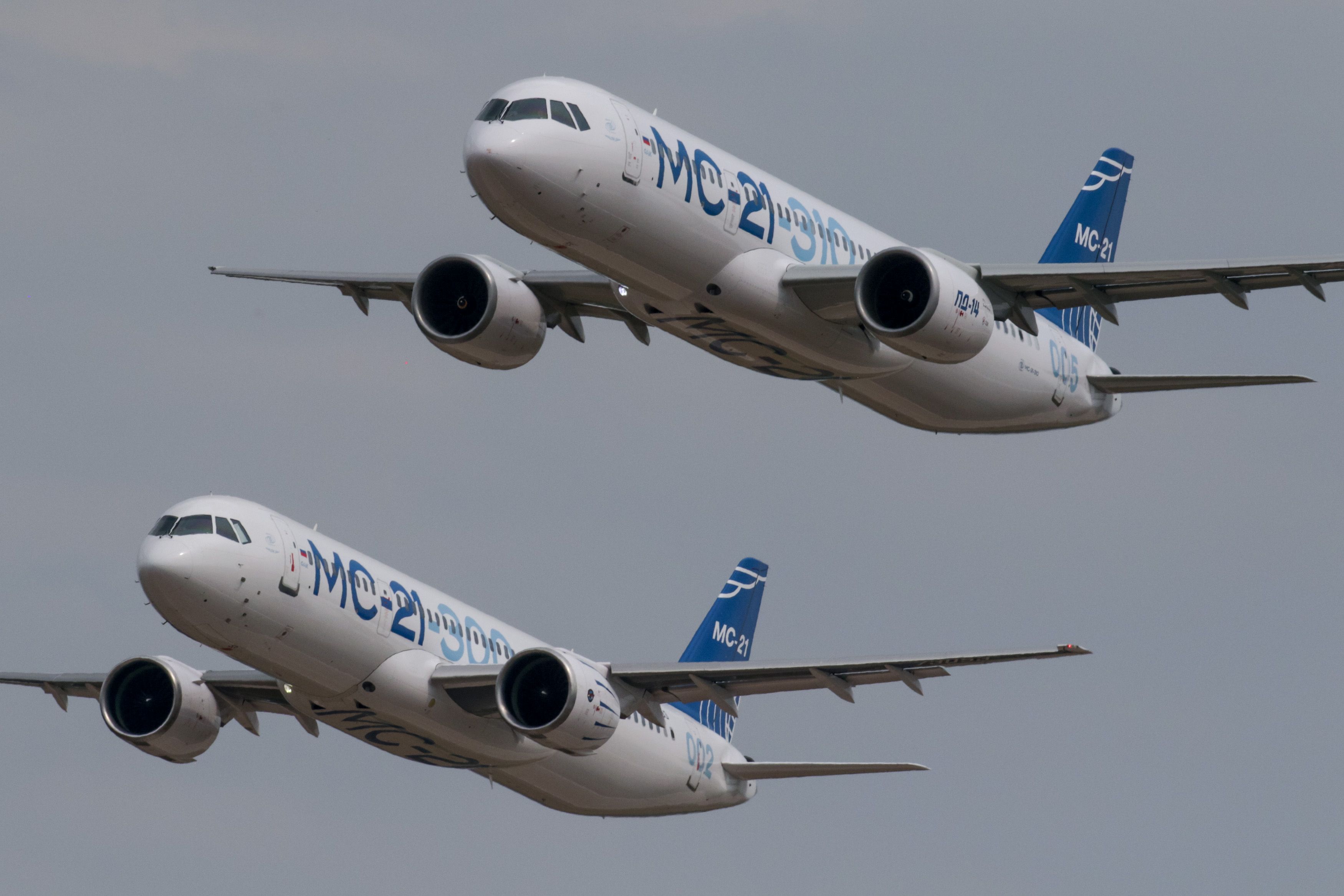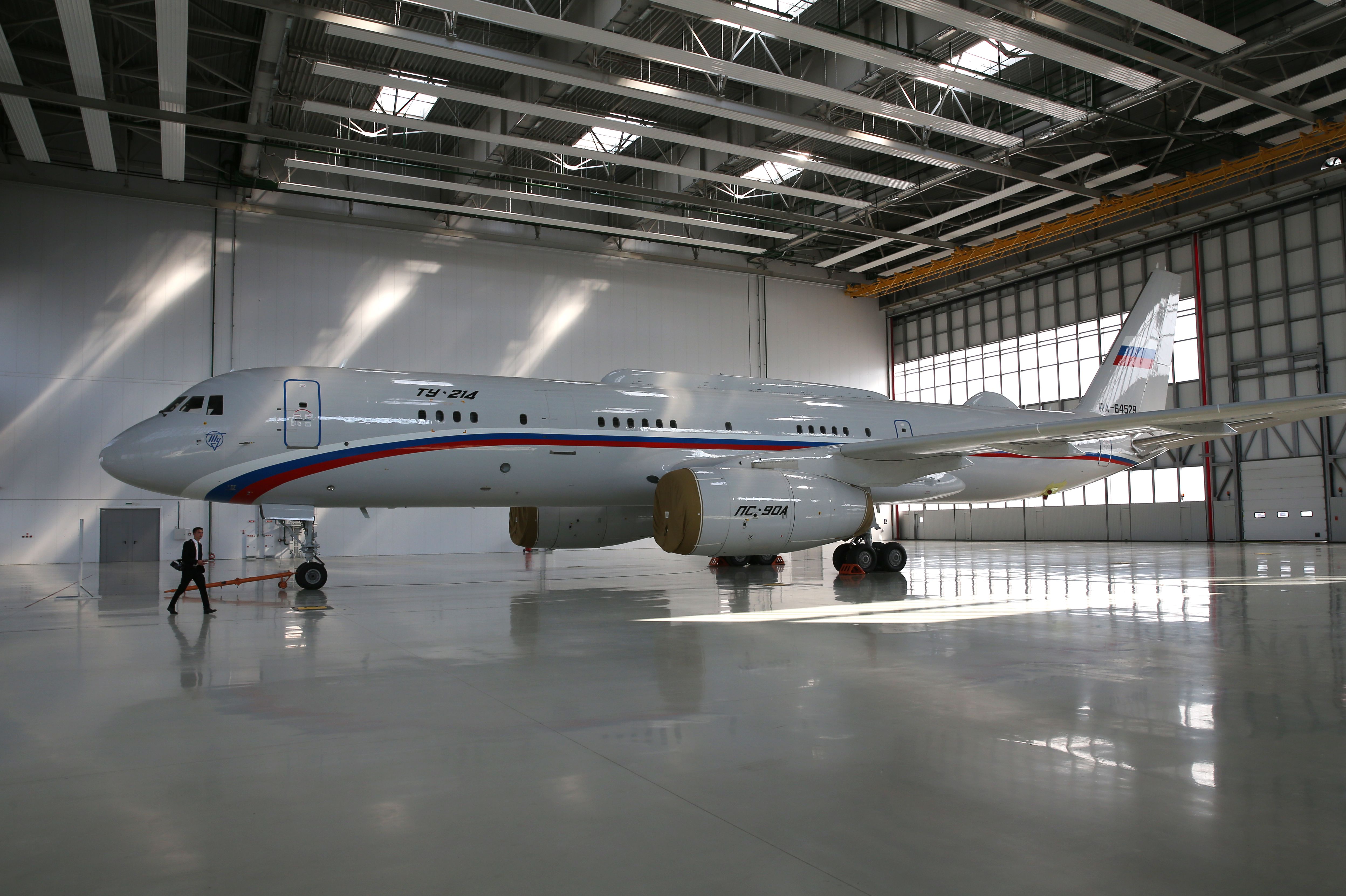Sanctions in place from before the invasion of Ukraine have been a nuisance for the Russian aerospace industry for years. The high cost of maintaining the Sukhoi Superjet led to low interest in the type from abroad - and where it arose, it quickly fell out of favor again.
Program delay
Meanwhile, the new flagship Irkut MC-21 narrowbody project has been massively delayed, to a large extent, due to economic ramifications from Russia's annexation of Crimea in 2014 and subsequent war in Eastern Ukraine.
At first, having aimed for and overshot an entry into service in 2016, Rostec planned to introduce the aircraft with Rossiya Russian Airlines this summer. However, because of the new near-unprecedented economic sanctions levied against the country due to the war in Ukraine, mass production is expected to be pushed back another one to two years.
Having to adapt
It is said that necessity is the mother of invention. This seems to be particularly true for the MC-21. While the project may have suffered as a whole due to the sanctions, they have provided an incentive for Russia to produce its own composite materials, develop a new engine - the Aviadvigatel PD-14, and now, to produce its own homegrown radio and intercom equipment for the aircraft.
The statement issued by the state-run aerospace umbrella corporation Rostec announcing the new development read,
“The Polet enterprise of the Ruselectronics holding has developed short- and long-range communication equipment for the MC-21 aircraft. By the end of this year, 20 radio stations will be delivered to the customer. We also developed intercom equipment for MC-21. The equipment certification is due to be completed this September. In addition, we developed software for data transmission in civil aviation networks.”
Over 70 'import-substituted' MC-21s per year
The General Director of the United Aircraft Corporation (UAC), Yuri Sluysar, has previously stated that the company plans to produce at least 36 MC-21 jets by 2025. Production will then increase to 72 jets per year. Demand for what is termed 'import-substituted' versions of the MC-21 and the SSJ-100 has skyrocketed as a consequence of foreign OEMs no longer providing Russian airlines with aircraft.
Sanctions imposed by the US and the EU include a complete ban on the supply of Airbus and Boeing aircraft and their parts to Russia. Deputy Prime Minister Yuri Borisov has acknowledged that the country's aviation industry is facing a severe challenge as a result.
Planning for a prolonged deadlock, the Ministry of Transport and the Ministry of Industry are looking at ways to keep the current fleet flying until they can be replaced by a sufficient number of domestically built models. Furthermore, Rostec is setting up a facility in Kazan devoted to boosting the production of the slow-churning passenger program of the Tu-214. Plans are to build ten aircraft per year. Catch up on more aviation news here.
What do you make of the impact the sanctions are having on Russia's aerospace industry? Could they potentially benefit the sector in the long run? Leave a comment below and share your thoughts.



